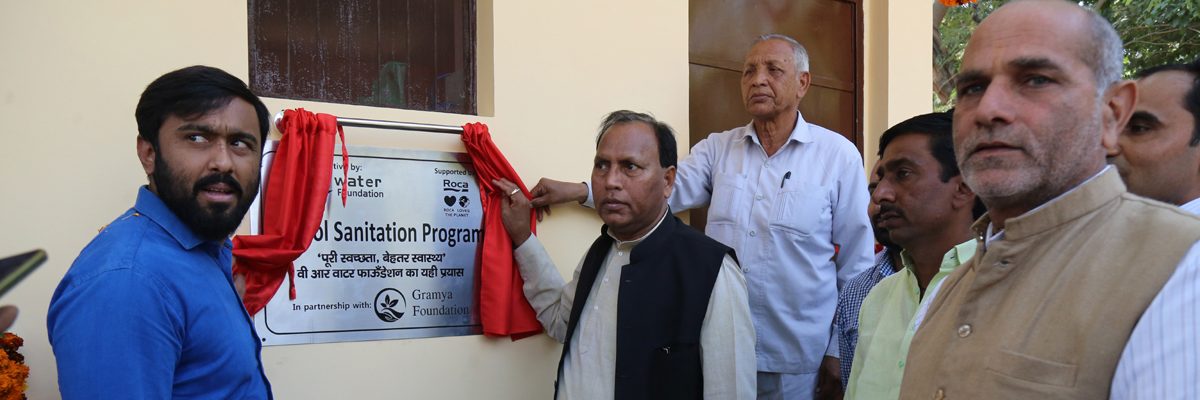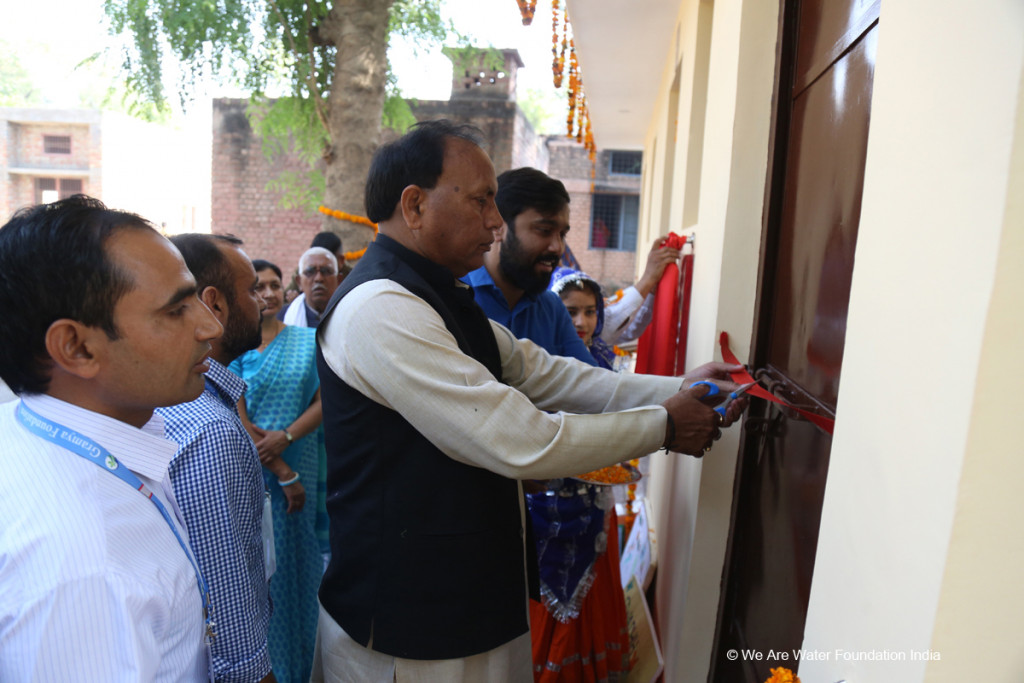Alwar (Rajasthan), Rewari, Haryana, India
In collaboration with

July 2018 – April 2019
We work to provide adequate and safe sanitation and hygiene facilities in schools so that students become agents of change in their family and social environment.
Objectives
- Provide water and sanitation facilities in schools so that children from early childhood can use them and develop appropriate habits for their use.
- Promote hygiene using toilets and handwashing stations and link it to the home and community.
- Promote sharing of tasks, such as collecting water and cleaning toilets, by boys and girls alike.
- Raise awareness among students and teachers about the need for facilities that ensure privacy and safeguard the dignity of girls for all sections of society.
- Develop a system so that the schools maintain the facilities without external support.
Beneficiaries
1500 direct

On the ground
There is a lack of adequate sanitation facilities in schools in the area, which impacts cognitive delay and absenteeism.
School is important for cognitive, creative and social development of children. So is the School Sanitation and Hygiene Education, necessary for the safe, secure and healthy environment for children to learn better and face the challenges of future life.
There were no adequate facilities to meet these expectations in the project schools.
On the other hand, construction of toilets in schools is easy but making them functional and usable always needs the change of mind set and behaviours of the large group of children and commitment of the school teachers.

In detail
A toilet was built in two schools in Rewari, Haryana and three more schools were renovated in Alwar, Rajasthan under the title “School sanitation project”.
The project included the distribution of bathroom accessories to schools that serve 1,500 public school children.
The behaviour change training forms a crucial part of the entire project as it creates a sense of awareness towards proper sanitation facilities among the community and also exhorts students to take an ownership in maintenance of the sanitation units.
The project extends its reach not just to the community, students and teachers but also to other stakeholders like SDMC members (School Development and Monitoring Committee), Education Department and Local Gram Panchayat. While the former takes part in ensuring that units are maintained properly, the latter are involved in monitoring through audits and providing support to the community in availing benefits of government schemes.

